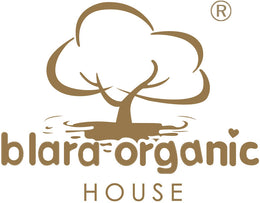Organic Cotton vs. Conventional Cotton: Making Informed Wardrobe Choices
In the ever-evolving world of fashion, our fascination with the latest trends often overshadows the critical consideration of fabric choices. When it comes to what we wear, the debate between organic cotton and conventional cotton begs the question: which is the better fit for your wardrobe? In the era of sustainable living, organic cotton has emerged as a frontrunner in the fashion and textile industry. But what exactly is organic cotton, and why is it gaining such prominence? Let's delve into the distinctions between these two common cotton types.
What is organic cotton?
Elevate your fashion choices with organic cotton, a beacon of sustainable style grown without synthetic pesticides and fertilizers. This ensures a fabric that is not only free from harmful chemicals but also reflects a commitment to ethical farming, promoting soil fertility, biodiversity, and water conservation.
The cultivation of organic cotton prioritizes minimal environmental impact through methods and materials that replenish soil fertility and foster biologically diverse agriculture. Embracing third-party certifications, organic producers adhere strictly to approved methods, ensuring a product grown without toxic pesticides and synthetic fertilizers. Moreover, federal regulations reinforce the commitment to sustainability by prohibiting the use of genetically engineered seeds in organic farming.

How much organic cotton is grown globally?
It is estimated that organic cotton comprises a modest percentage, usually around 1% or less, of the total global cotton production
Organic Cotton vs. Conventional Cotton
Why Organic Cotton?
1. Pesticide-Free Cultivation:
- Organic Cotton: Boasts a pesticide-free cultivation method, reducing the environmental impact by eliminating the use of synthetic chemicals. Organic cotton accounts for approximately 1% of the global cotton market.
- Conventional Cotton: Frequently relies on pesticides, contributing to environmental degradation and potential health risks for farmers. Conventional cotton dominates the remaining 99% of the market. Some of the most widely used pesticides include: Glyphosate (which likely causes carcinogens), Methyl parathion (listed under the Rotterdam Convention as fatal if inhaled), Fluometuron (causes reproductive problems), Acetamiprid and Chlorpyrifos (toxic for bees).
2. Non-GMO Seeds:
- Organic Cotton: Rejects genetically modified seeds, maintaining biodiversity within plant species.
- Conventional Cotton: May involve the use of genetically engineered seeds, impacting the natural diversity of cotton crops.
3. Minimal Chemical Residues:
- Organic Cotton: Manufactured without synthetic chemicals, resulting in products free from harmful chemical residues.
- Conventional Cotton: Products may carry residues of synthetic chemicals used during production, posing potential health concerns for consumers. These chemicals can include Chlorine bleach, Formaldehyde, VOCs (Volatile Organic Compounds), PFCs (Perfluorocarbons), and Ammonia.
4. Durability and Quality:
- Organic Cotton: Renowned for durability due to minimal chemical processing and the utilization of high-quality natural fibers. Organic cotton apparel is less prone to pilling, more breathable, and less likely to shrink, making it suitable for sensitive skin.
- Conventional Cotton: Chemical-intensive processing in conventional cotton may compromise the durability and overall quality of products.
Blara Organic House
Our products are made from 100% Organic Cotton - a natural and pollution-free variety of cotton that does not use any chemical pesticides or synthetic fertilizers, which helps to protect soil and water sources and maintain ecological balance. The organic cotton materials that we use are GOTS certified.

What does it mean? This certification ensures that strict environmental criteria are respected when it comes to the use of chemical products and the responsible consumption of water, through the manufacturing of materials. Natural Dyes are made using plant extracts for coloring and do not contain any harmful chemicals, making them non-irritating to the skin. At the same time, they also provide rich colors and texture variations, making the clothing more beautiful, natural and unique. Why Your Baby Should Wear Natural Dyed Clothing?
Blara is the wise choice not only for those who pursue a green and sustainable lifestyle but also for parents who prioritize their baby's health. We understand the importance of providing healthy clothing for babies, ensuring both comfort and peace of mind for parents. Explore our popular 100% organic cotton collection which is a perfect blend of softness, breathability, and warmth. Feel the difference from the moment your little one puts it on!

























